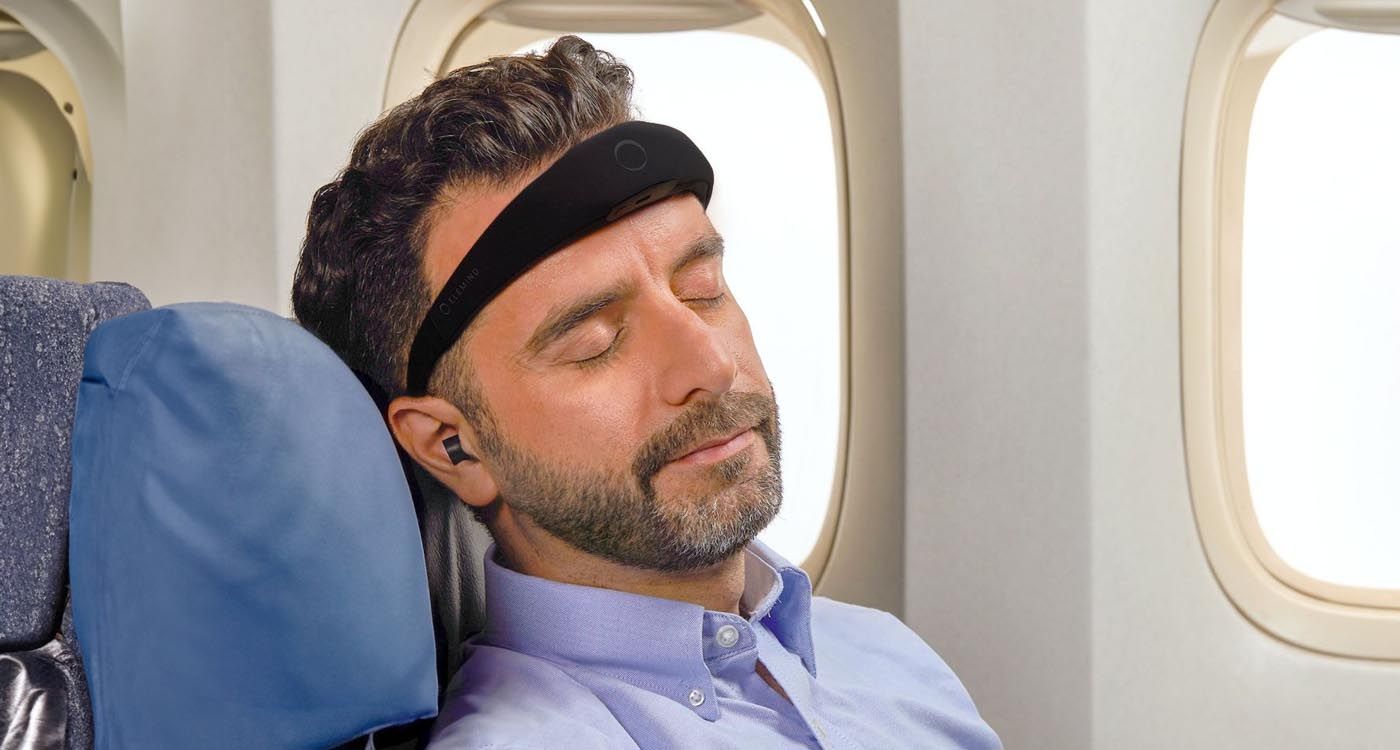
Developed at MIT, Elemind is a smart headband that promises to help you fall asleep up to 48% faster—without medication or side effects. Using sound-based neuromodulation technology, this innovative device could revolutionize how we approach sleep… if it lives up to its claims.
Falling asleep without pills, sleeping aids, herbal teas or guided meditation—that’s the bold promise behind Elemind. Born from MIT’s research labs, this seemingly simple headband targets one of modern life’s most persistent struggles: difficulty falling asleep, which affects millions worldwide. The claim is compelling: a nearly 50% reduction in the time it takes to drift off, all without active substances, dependency risks or adverse effects.
At first glance, Elemind resembles a lightweight (about 60 grams), flexible sports headband lined with soft foam. Yet inside, advanced technology operates quietly: five EEG electrodes record brain activity in real time, an accelerometer monitors head movements and a tiny bone-conduction speaker delivers precisely timed sound pulses.
These sounds, known as synchronized pink noise, are emitted in phase with the user’s brainwaves. When the brain shows signs of wakefulness or tension—marked by alpha waves—the device emits a carefully calibrated sound to neutralize these signals and encourage the transition into sleep. It’s like noise-cancelling headphones… but for your thoughts.
Turning Down the Brain
Inspired by active noise cancellation principles, this acoustic neuromodulation technique was tested in a pilot study by startup Elemind Technologies. The results were promising: 76% of users fell asleep faster, with an average time reduction of 48%, and some individuals experiencing improvements as high as 74%. The headband also proved helpful for nighttime awakenings—a “restart sleep” feature accessible through the companion app reactivates stimulation to aid users in falling back asleep.
Meredith Perry, co-founder of the startup and former biomedical researcher, explains that the system functions as a deactivator of brain hyperactivity. This makes it particularly beneficial for those suffering from anxiety, racing thoughts or delayed sleep phase syndrome. The app, called Sleep Tailor, leverages artificial intelligence to gradually personalize stimulation for each user, crafting a tailored path to sleep.
Initially tested on healthy adults, Elemind’s creators plan to expand its applications—optimizing deep sleep, managing jet lag and assisting children with sleep issues, among others—potentially broadening its impact significantly.
Despite the enthusiasm, caution is advised. The headband is not yet approved as a medical device, and existing studies have been conducted internally by the company. To date, no large-scale independent evaluations have been published. While the potential is real, scientific validation is ongoing.
Another consideration is the price: Elemind retails for about $349, with an optional $7 monthly subscription for advanced app features. This positions it as a premium product, currently appealing mainly to tech-savvy consumers familiar with health and wellness wearables.
As many sleep experts emphasize, no device can replace good sleep hygiene. Consistent sleep schedules, exposure to natural light and reducing screen time and stimulants in the evening remain the essential pillars for restorative rest.
If Elemind fulfills its promises, it could open a new avenue in sleep care—one of gentle, personalized neuromodulation without drugs. It’s an ambitious technological venture worth watching, especially in a world where peaceful sleep is both a personal need and a collective challenge.

Comments